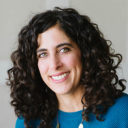I was a first-time attendee to the 2019 United Philanthropy Forum annual conference. I am newer to the field of philanthropy, and have spent most of my career working on social and political issues outside the United States, so I was in big-time learning mode over the three day conference. Really, when considering what to focus this blog post on, a lot came to mind, including:
- The commitment of United Philanthropy Forum, and its 75 plus members, to not just doing good in our work, but doing better. We heard these calls from Edgar Villanueva and LaTosha Brown, among many others. Villanueva described his book, Decolonizing Wealth, about transforming philanthropy, as essentially a ‘love letter to philanthropy’.
- Connected to this commitment, is a discipline of self-critique and a willingness to ask hard questions of our field: How can we increase diversity of all kinds on our boards (Phil Buchanan and others)? How do we address the implicit bias we know is present in hiring process and grantmaking? (Jennifer Eberhardt and others)
- A clear-eyed focus on philanthropy as a pathway to easing suffering; addressing structural inequities and disparities; and facilitating inclusion. And a reminder that supporting nonprofit and community based groups in all their approaches to direct service, public education, and root cause work is important.
Upon further reflection, I realiased that above and beyond these learnings, I was most moved by the how. HOW do we all do this? And there, the implicit and explicit emphasis throughout the conference was on collaboration and networks. The problems we are trying to solve are enormous, demanding ideas, solutions, and funds bigger than any one philanthropy serving organisation (PSO) or funder can provide. As Ben Francisco Maulbeck, President of Funders for LGBTQ Issues said during the conference: ‘Desperate times require deeper partnerships’.
It was remarkable for me to gather with a professional community that shares a philosophical, values-based, and practical commitment to networks and partnerships. I was energised by hearing colleagues in the session on The PSO Field Guide to Partnership and Collaboration state: ‘Partnership makes good better.’ Yes! Examples abound of how United Philanthropy Forum members are involved in networks across the country, not simply because it’s a nice and friendly thing to do, but because it makes a positive difference. There is great power and potential in networks.
Here are select examples of how the networked approach to philanthropy is playing out:
- After the 2016 terrorist attack at Pulse Nightclub in Orlando, FL PSOs and grantmakers across the country spoke quickly and with urgency to name the terrorism and lend support. At the plenary session The Power of PSO Partnership, Maulbeck of Funders for LGBTQ Issues spoke about how important the relationships were that formed across types of PSOs and funders, all in support of the LGBTQ and Orlando community. In particular, he called out the support the organisations received from another PSO, Grantmakers Concerned with Immigrants & Refugees. These connections were in place already via the United Philanthropy Forum network, and were further strengthened through the strategy. As Alice Hom, Director of Equity and Social Justice at Northern California Grantmakers tweeted during the session, networks and partnerships are about moving from ‘co-sponsorship to solidarity and showing up’.
- In the session The PSO Field Guide to Partnership and Collaboration, Dave Sheldon, Vice President of Collaboration and Community Building, Southern California Grantmakers, described how at that PSO, an openness to partnership and collaborating strengthened their work. Prioritising networks drove their growth and boosts value to members in an ongoing way. Networks are built within their memberships; between members and others in the sector; with public and private sectors; and with the other PSOs in California.
- In the session After the Census: What’s Next for PSOs in Strengthening Democracy, we learned about how across the country philanthropy is engaging with community, grassroots organisations and public sector, to ensure an inclusive count Census 2020. Those community and state-level networks are critical not only for a fair and accurate 2020 count, but to create longer term civic engagement. Michael Baskin, of Mile 22 Associates said: ‘It’s on us to build relationships with trusted messengers in communities.’
I’ve never attended a conference in my professional space where poetry had a place. Traveling Stanza was with us at the Forum conference and shared a poem created collectively at last year’s conference, one line of which is: ‘Together, our voices are immense, forming a network at the crossroads’.
Jessica Berns is Network Vibrancy Director at Philanthropy Massachusetts



Comments (0)